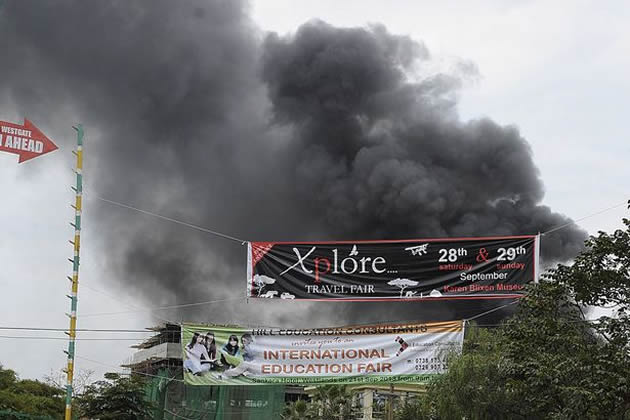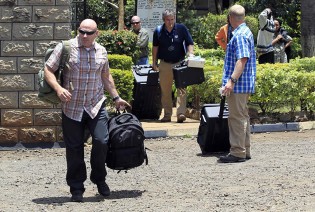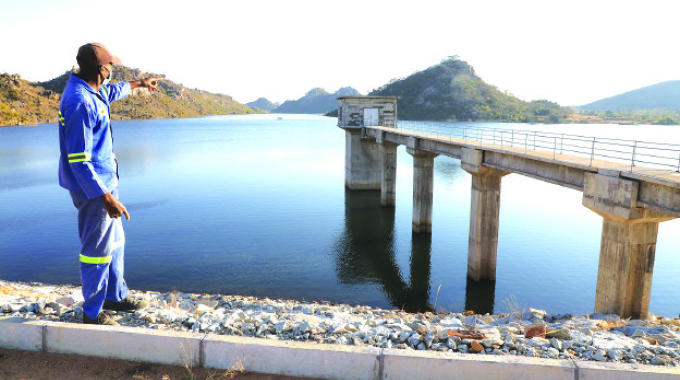We’re the African story, let’s tell our story

The Arena Hildegarde
STORY-TELLING is an art form passed on from one generation to another. It is an art form unique to a society.
When a people fail to tell its story, either that story will be told by other people in their own way, or the story will die a natural death.
There is no room for being apologetic when telling your own story.
In this regard, the Zimbabwean story is the African story, and the whole of Africa should see the importance of telling that story in a manner that does not distort or dehumanise its identity.
The same goes for the South African narrative, Zambian, Malian, Rwandan, Cameroonian, Kenyan, Ugandan, Somali, Libyan stories, to name but a few.
People make up the African story. What happens to the greatest or least of Africa’s one billion people makes the African narrative rich, especially when the people take it upon themselves to tell that narrative.
We are supposed to tell that story so that others out there know who we are, where we come from, how we got to where we are and what our aspirations are.
Story-telling is a major responsibility, and when we fail to execute it responsibly, it means that we are opening doors for others to think on our behalf and tell our stories as they see fit. It is also self-destructing considering that we will end up parroting our own narrative as told by other people.
The thread then is that a personal story should assume a national flavour, while the national narrative should encapsulate continental dimensions.
The OAU/African Union Golden Jubilee celebrations steered the course on the importance of telling our story when they came up with Agenda 2063.
Fifty years later, the African story should be story told by Africans themselves. Others should just buy into it and not the other way round.
A colleague last week reminded me of the power of story-telling when she gave me the scripture references Joshua 2:1-23 which should be read together with Romans 10:14-17: “So then faith cometh by hearing, and hearing by the Word of God” (verse 17).
In the book of Joshua we see how the children of Israel passed on their story from one generation to the other. By the time Joshua wanted to destroy Jericho, the people of that city from the king to Rahab the prostitute knew who these people were, and Rahab openly says to the spies sent by Joshua, “I know that the Lord has given you the land and that your terror is fallen upon us and that all the inhabitants of the land fain because of you. For we have heard how the Lord your God dried up the water of the Red Sea for you when you came out of Egypt . . .”
Forty years after the Red Sea deliverance, the narrative was still alive even among non-Israelites. Why? Because it was a story that kept on being told over and over again, thereby making other nations know and understand who the Israelites were.
At mid-day last Saturday, a major African story unfolded in the Kenyan capital Nairobi when al-Qaeda-linked terrorist group al-Shabaab stormed an up-market Westgate shopping centre and shot hundreds of people and held others hostage.

Foreign forensic experts arrive to collect data on three dead victims of the Westgate shopping centre attack at the city mortuary yesterday. US, British, Canadian and Israeli agencies are helping Kenya investigate the attack claimed by Somali Islamist militants Al-Shabaab. – Reuters.
This was a monumental tragedy that added to other challenges faced by the Kenyan government as both President Uhuru Kenyatta and his deputy William Ruto are facing crimes against humanity at the International Criminal Court.
President Kenyatta had been forced to defer his maiden appearance at the on-going United Nations General Assembly session in New York, fearing that there would be a power vacuum, since deputy president Ruto was at The Hague.
But from the time I saw the breaking news alert at mid-day, up to Saturday evening, I wondered whether this story would once again be a scoop for the international media since they have the resources and personnel in almost every country in the world.
As the expected first responders, where was the African media including the Zimbabwean media in telling this tragedy and how did we as a continent deal with this story?
In an environment of news-on-demand and social media, why did this big story not even feature as a breaking news item on a majority of Africa’s websites and blogs?
The media’s role is to inform, educate and entertain, but was this the case last Saturday?
What reasons do we have as journalists for failing to be in the forefront informing the people about how this tragic and dastardly crisis was unfolding?
Was it because it was a weekend, or we did not even realise the enormity of this tragedy as it was unfolding?
As I surfed the Internet, I also concluded that some thought that this was nothing but a Kenyan tragedy where terrorists were targeting
Americans and British nationals, not-withstanding that Nairobi, just like many big cities, is a cosmopolitan city, implying that those expatriates who shopped at that mall could have been from any part of Africa, Zimbabwe included?
The mere fact that the shopping centre is called Westgate should actually have roused us to act.
Instead, we saw that within hours both the British and American governments had issued statements saying that their nationals were among the victims of that terrorist attack.
As I followed developments on the Daily Nation website, it was disheartening to note that I could not access the NTV Kenya livestream as I got the message, “Your browser does not currently recognise any of the video formats available. Click here to visit our frequently asked questions about HTML5 video”.
Thus Africa slammed the door to its story in my face leaving me with no option but to go to check live updates on the Internet on Sky News, BBC, CNN, France24, Russia Today, Press TV ad others.
In Zimbabwe, our TV channel did not even mention this story on prime time news on Saturday.
This was a moment of introspection. Indeed we need to be on track regarding the national agenda, but was the Kenyan Westgate mall terrorist attack not part of that agenda?
Where we not even concerned that there could be Zimbabwean citizens caught up in the tragedy?
Thus we have once again been up-staged and out manoeuvred and there is no reason under the sun that we can give for this deficit. We failed the people, period.
Terrorism is spreading its wings far and wide on the continent, and some analysts in Western media outlets openly said if Al-Shabaab was indeed the perpetrator, then it was not just fighting Kenyans and foreign nationals in that shopping complex, but they were at war with the whole of Africa since the Kenyan forces that are fighting al-Shabaab in Somalia are there under the banner of the African Union, which agreed to send forces to fight these terrorists.
This alone should have awakened our conscience and seen it fit and proper to tell the story so that people understand the implications.
Media outlets — print and electronic — in most parts of the world depended on news feeds from those who were on the ground. Analysing most of the video footage, it was easy to realise that the story could easily be localised in any part of Africa, without necessarily raising alarm and despondency.
The failure to inform gave a sense of business a usual, while outsiders used this opportunity to entrench themselves and sway public opinion in their countries.
By late Saturday, British Foreign Secretary William Hague was already indicating that they will send a reaction team to Kenya to assist the Kenyan authorities. The trend is quite predictable.
The United States administration followed suit, and so did other Western governments. But Africa’s voice was conspicuous by its silence.
This is not a blame game. It’s reality. Among the victims of this tragedy was a Ghanaian poet, academic and former diplomat Kofi Awoonor.
As Western media started mentioning names of the deceased, it was as if such an outstanding personality was not there.
But when the hostage takers assumed international dimensions, all these other personalities were forgotten. The reason is pure and simple.
Their governments and media ensure that when tragedies like these occur, they have a responsibility to inform the people at home of realities on the ground.
Put simply, everyone follows the flag and understands what it means to be a citizen where both government and the media are there to stand by them when they are in foreign lands.
We saw this element when reports started emerging that the Westgate terrorists were made up of various nationalities, including the United States, Britain, Canada and Finland. But, calls for thorough verification were made before definitive statements could be issued.
Before the United Nations Secretary-General, Ban Ki-moon, issued his statement on Saturday, one would have hoped to read statements from African institutions as the affected and first responders.
We cannot therefore force other people to have faith in us when we cannot tell our own narrative and when we also pay lip-service to the notion that we should tell our stories.
So many of our narratives have been told by others, and if we do not prioritise this important aspect that defines our identity, then we have a serious identity crisis.
What does it benefit us if we are able to interpret what outsiders think and feel about us, when we cannot even tell our own story?
Whose fault is it? Fifty years on, Africa says it is ready to stand up to be counted, but when there is such a deficit, should it continue to blame these loopholes on slavery, colonialism and neo-colonialism?
It is better that Africa makes mistakes and correct those mistakes on its own, just as Kenya’s Foreign Minister Amina Mohamed said recently, as long as Africa realises these are coming from their own narratives.










Comments